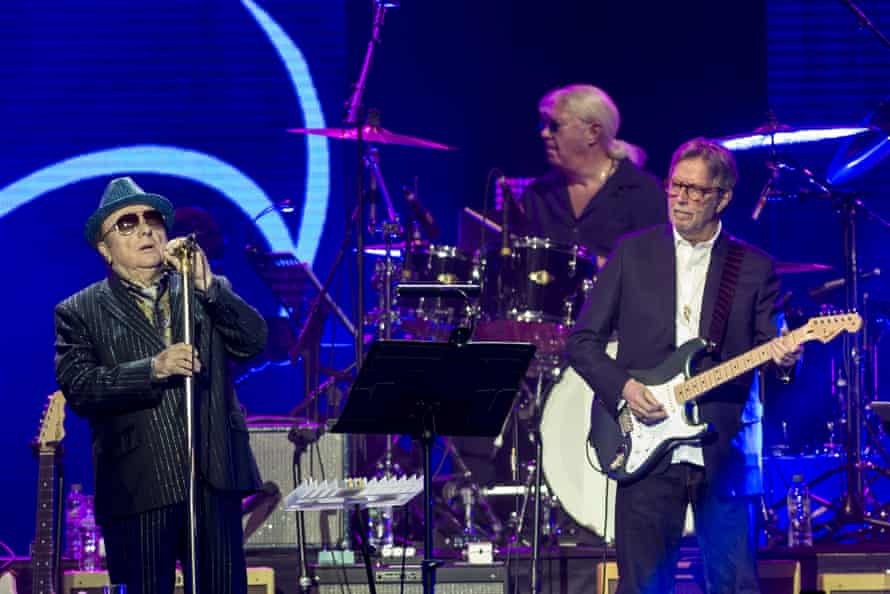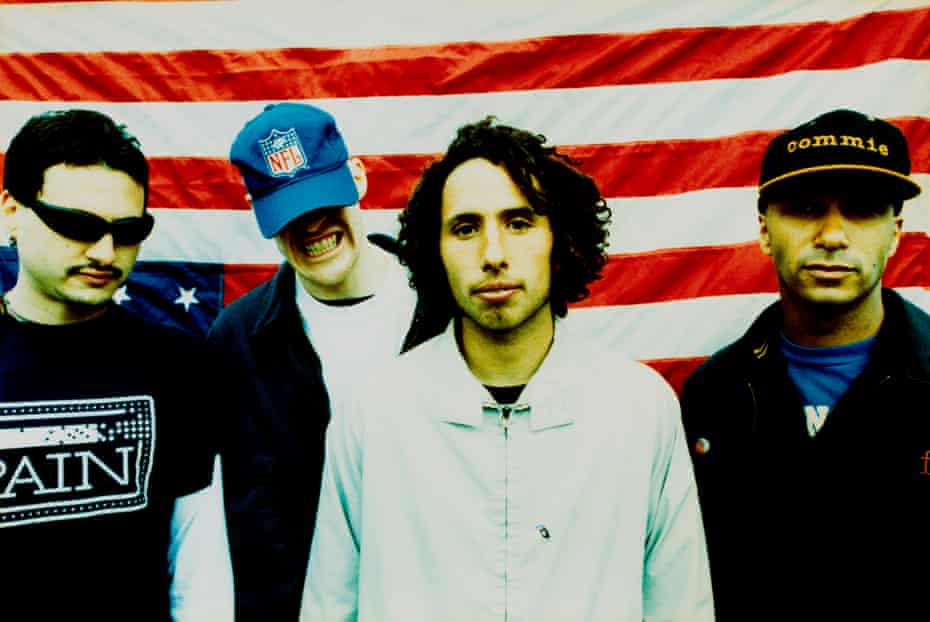“Did you know that Born in the Usa is really an anti-Vietnam war anthem?” Considering that Donald Trump embraced the 1984 Bruce Springsteen tune all through rallies, the lyrics have prompted so significantly clarification it now borders on cliche. Still it’s no significantly less unsettling for it, getting to be a prime case in point of a startlingly popular craze for the suitable wing to co-choose tunes about struggle and development.
President Ronald Reagan built the very first attempt to gloss about the context of the song’s ironically upbeat refrain after the launch of the Born in the United states of america album. Reagan identify-checked Springsteen during a New Jersey rally in an try to link the musician to a “message of hope” for The us. Springsteen’s opposition to its use didn’t have an effect on the fervour for the music from Trump and his supporters. As Barack Obama mentioned in an episode of his podcast collection with Springsteen this month: “It finished up staying appropriated as this legendary, patriotic music. Even though that was not necessarily your intention.”
Neither has the Clash’s position as leftist punk icons been a sticking point for Boris Johnson, who named the band one of his favourites in 2019 nor has Rage In opposition to the Machine’s socialism and anti-law enforcement stance been a trouble for anti-mask truthers and Trump diehards, who last yr blasted the band’s Killing in the Title at a Trump rally.
Neil Youthful experienced to weigh in right after Trump frequently employed his anti-The us song Rockin’ in the No cost Globe at marketing campaign gatherings. In a because retracted lawsuit, Young said that he couldn’t “in very good conscience” enable his new music “to be used as a ‘theme song’ for a divisive, un-American marketing campaign of ignorance and hate”.

The most up-to-date example comes from anti-lockdown protesters who, positioning on their own as oppressed, have contorted Twisted Sister’s We’re Not Gonna Get It into an anti-mask anthem. Whilst the band’s guitarist Jay Jay French describes what has been named a quintessential American protest track as speaking “to the disenfranchised everywhere”, the band support social distancing, mask-sporting, and vaccination. “The point that a well being disaster alternative has been politicised and characterised as a danger to someone’s individual civil rights is just impossible to understand,” he claims. On their anti-lockdown observe, Stand and Deliver, Eric Clapton and Van Morrison went additional by utilizing the language of liberation to supply their information.
Kevin Fellezs, affiliate professor at Columbia University, is investigating “freedom musics”, a custom through which artists and their communities “articulate their aspirations for person or collective liberation”. Stand and Deliver twists the custom, he states, blurring ideas of flexibility and slavery with lyrics such as, “Do you wanna put on these chains / Until you’re lying in the grave?” He accuses Morrison and Clapton of “pursuing self-curiosity at the expense of a more substantial social excellent or need”.
Elliott H Powell, associate professor at the University of Minnesota, says that this is primarily troubling offered pop music’s use by marginalised artists “to critique programs of domination and subordination … and to think about existence outdoors of these systems”, citing Community Enemy’s Battle the Energy and
Billie Holiday’s Weird Fruit. By hijacking these kinds and their languages, claims Powell, the right wing dismisses and diminishes the social actions that use them. “It tries to say that the anti-mask and anti-lockdown movement is no different from other independence struggles,” he claims. “It’s naturally a wrong equivalence when we stick to the flows of power.”
Linguistic and thematic appropriation is part of common new music background. “Long back, People in america figured out strategies to take pleasure in Black songs even though also remaining racist, although also becoming white supremacist,” states Jack Hamilton, a professor at College of Virginia. “Being equipped to independent out these factors is an unlucky aspect of American well-known audio audiences – likely well known tunes audiences all over the place.”

It is been that way for centuries, according to Noriko Manabe of Temple College, who states that, in 17th-century England, people tunes had been reinterpreted and rewritten by opposing social and political teams. Similarly, in 18th-century America, songs that ended up as soon as used by loyalist or anti-loyalist teams in England had been adapted by warring federalist and republican factions. Manabe claims that common audio has generally been an powerful organising and emotion-rousing device.
She recently analyzed the appears designed all through the storming of the US Capitol, exactly where attackers chanted, “No Trump, no peace”, an inversion of Black Lives Matter’s “No justice, no peace”. “That is these kinds of an abomination of the unique ideological framework that it will make me really mad,” claims Manabe.
Past the psychological triggers, Hamilton says the co-opting is aspect of an effort and hard work to website link conservatism to rise up and the notion that to be conservative is to be rebellious. This crops up in young conservatives and Trump supporters, and even more visibly in anti-mask and anti-lockdown movements. “The anti-mask motion, at the very least on its encounter, is about, ‘Don’t inform me what to do,’” states Hamilton. “You can obtain that all more than well-liked music. There is so considerably pop tunes about independence and becoming in a position to do what you want.”
The journalist Charles Bramesco, who has analysed loathe groups’ makes an attempt to use do the job by the likes of Depeche Manner and Johnny Hard cash, echoes Hamilton’s evaluation. “The persecution complexes of considerably-suitable teams compel them to gravitate towards language about oppression and rising up,” he says. “A great deal of the songs that touches on all those themes happens to be created from a perspective wholly alien to their very own.”
Benjamin Teitelbaum, an ethnomusicologist at the College of Colorado who research songs in significantly-ideal nationalist and white supremacist movements, claims the considerably right’s use of songs has deep roots. “The greatest stars in the [far-right] scene, the major economic initiatives, the most significant gatherings, the ways that folks recognized themselves, all of those people items had to do with tunes through the 1980s and 90s in unique,” he says. “Music usually performs an outsize function for political brings about that don’t have a whole lot of parliamentary, democratic or innovative selections for on their own.” Teitelbaum cites the British Countrywide Party’s report label, Great White Records, as a car or truck for building electricity in lieu of institutional acceptance: “If you’re not going to gain at the ballot box, you can nevertheless achieve victory as a result of symbolic expression like audio.”
In the 80s and 90s, these expressions had been explicitly nationalist and fascist, with acts such as punk band Skrewdriver, Norway’s Black Circle bands, and the worldwide music pageant Rock Versus Communism delivering a musical staging floor for skinhead white nationalism and neo-Nazism. But in the 2000s, these actions commenced a significant rebrand, branching into rap (Germany’s Dissziplin), reggae (Nordic Youth in Sweden), singer-songwriter and pop kinds (these as Swedish singer Saga). Teitelbaum states their songwriting message was: “We just like ourselves, we just want to be ourselves, I appreciate our individuals so considerably and we’re dying, another person support us.”
This change, he claims, dilutes the electrical power and clarity of music that legitimately takes advantage of themes of struggle. “We know the chorus of Born in the Usa, but we sort of hum as a result of the rest of it.” Even Killing in the Title, created by strident leftwingers, isn’t immune: “If it retains transpiring in these [rightwing] settings and for these purposes, it will receive these meanings.”

Teitelbaum, who not long ago researched the growing much-suitable youth movement in the US, says that this dynamic demands far more than ridicule. “We can be struck by the idiocy of it, but we should really also be struck by the traces of intelligibility that are floating all around there,” he claims. “Calling them stupid isn’t gonna do nearly anything. This act of appropriation is not using put in a vacuum.”
As Twisted Sister’s French says, “all any artist can truly do is to publicly disgrace the consumer into halting the use”. But artist rebukes and social media parody can only do so significantly to staunch the appropriation – the significantly right’s acceleration of this tactic could demand from customers a more in depth, proactive approach. Fellezs says improved new music training could be important. “I do not mean to train kids ‘good music’ so they will not want to hear to ‘bad songs,’” he states. “What we can do is educate, empower and really encourage folks to listen with a essential ear.”
Powell agrees. “If we stay committed to subsequent and critiquing the flows of electrical power in how they manifest and function in these tunes, then the electricity of this sort of music will not be lost.” So let’s recall Born in the United states for what it is: a portrait of a racist America focused on overseas wars though its overall economy flounders. Seem familiar?
